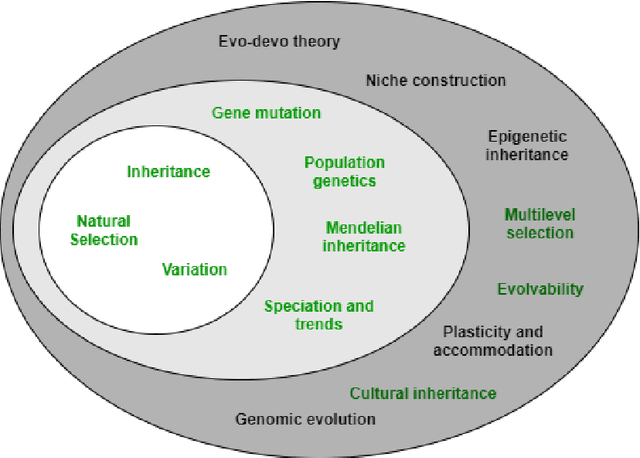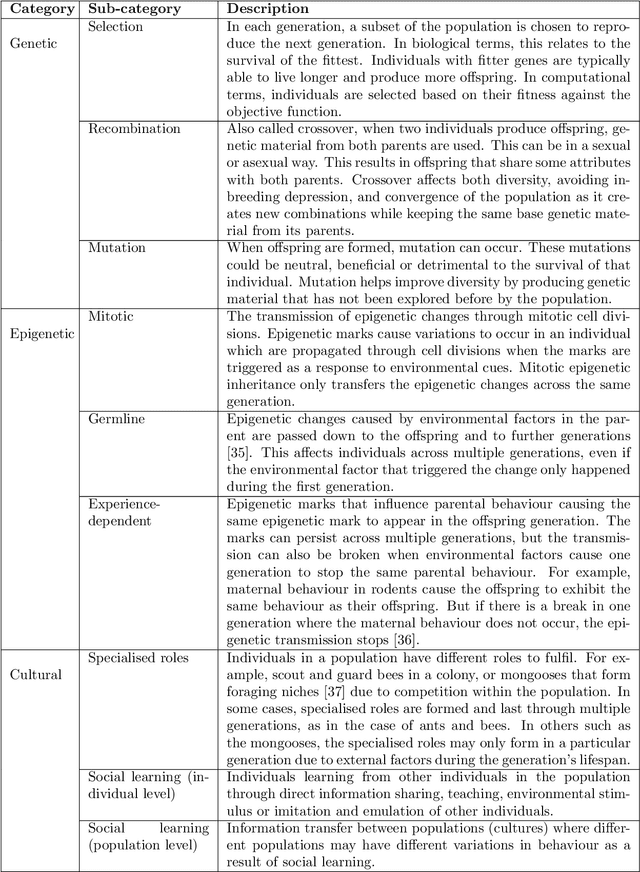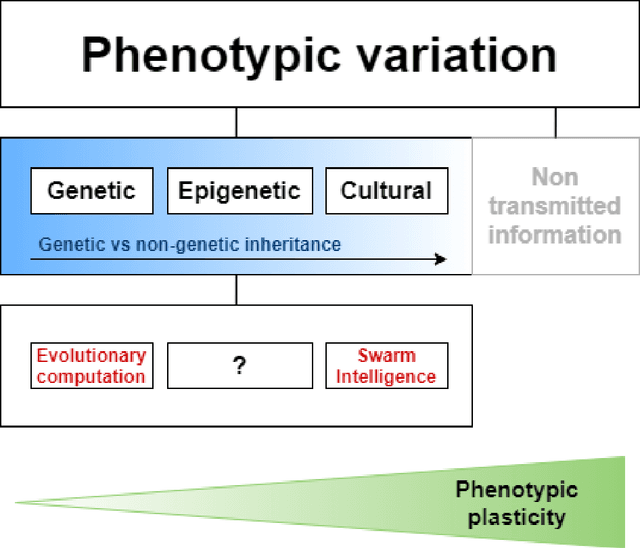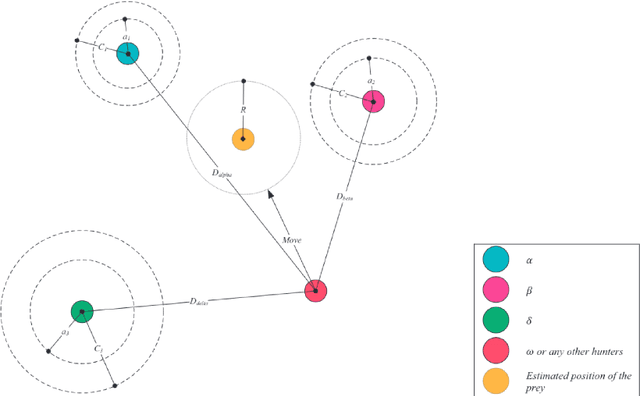Thomas H. G. Ezard
The Effect of Epigenetic Blocking on Dynamic Multi-Objective Optimisation Problems
Nov 25, 2022Abstract:Hundreds of Evolutionary Computation approaches have been reported. From an evolutionary perspective they focus on two fundamental mechanisms: cultural inheritance in Swarm Intelligence and genetic inheritance in Evolutionary Algorithms. Contemporary evolutionary biology looks beyond genetic inheritance, proposing a so-called ``Extended Evolutionary Synthesis''. Many concepts from the Extended Evolutionary Synthesis have been left out of Evolutionary Computation as interest has moved toward specific implementations of the same general mechanisms. One such concept is epigenetic inheritance, which is increasingly considered central to evolutionary thinking. Epigenetic mechanisms allow quick non- or partially-genetic adaptations to environmental changes. Dynamic multi-objective optimisation problems represent similar circumstances to the natural world where fitness can be determined by multiple objectives (traits), and the environment is constantly changing. This paper asks if the advantages that epigenetic inheritance provide in the natural world are replicated in dynamic multi-objective optimisation problems. Specifically, an epigenetic blocking mechanism is applied to a state-of-the-art multi-objective genetic algorithm, MOEA/D-DE, and its performance is compared on three sets of dynamic test functions, FDA, JY, and UDF. The mechanism shows improved performance on 12 of the 16 test problems, providing initial evidence that more algorithms should explore the wealth of epigenetic mechanisms seen in the natural world.
Epigenetic opportunities for Evolutionary Computation
Aug 10, 2021



Abstract:Evolutionary Computation is a group of biologically inspired algorithms used to solve complex optimisation problems. It can be split into Evolutionary Algorithms, which take inspiration from genetic inheritance, and Swarm Intelligence algorithms, that take inspiration from cultural inheritance. However, recent developments have focused on computational or mathematical adaptions, leaving their biological roots behind. This has left much of the modern evolutionary literature relatively unexplored. To understand which evolutionary mechanisms have been considered, and which have been overlooked, this paper breaks down successful bio-inspired algorithms under a contemporary biological framework based on the Extended Evolutionary Synthesis, an extension of the classical, genetics focussed, Modern Synthesis. The analysis shows that Darwinism and the Modern Synthesis have been incorporated into Evolutionary Computation but that the Extended Evolutionary Synthesis has been broadly ignored beyond:cultural inheritance, incorporated in the sub-set of Swarm Intelligence algorithms, evolvability, through CMA-ES, and multilevel selection, through Multi-Level Selection Genetic Algorithm. The framework shows a missing gap in epigenetic inheritance for Evolutionary Computation, despite being a key building block in modern interpretations of how evolution occurs. Epigenetic inheritance can explain fast adaptation, without changes in an individual's genotype, by allowing biological organisms to self-adapt quickly to environmental cues, which, increases the speed of convergence while maintaining stability in changing environments. This leaves a diverse range of biologically inspired mechanisms as low hanging fruit that should be explored further within Evolutionary Computation.
 Add to Chrome
Add to Chrome Add to Firefox
Add to Firefox Add to Edge
Add to Edge